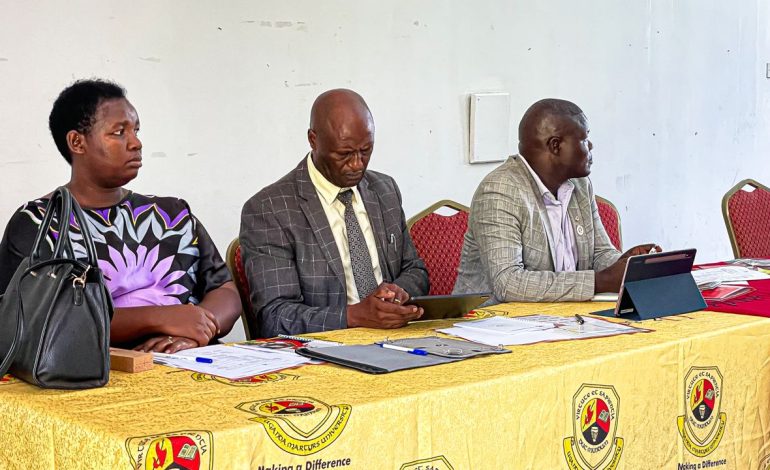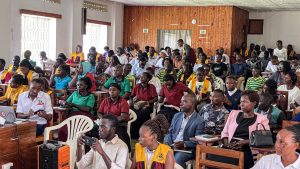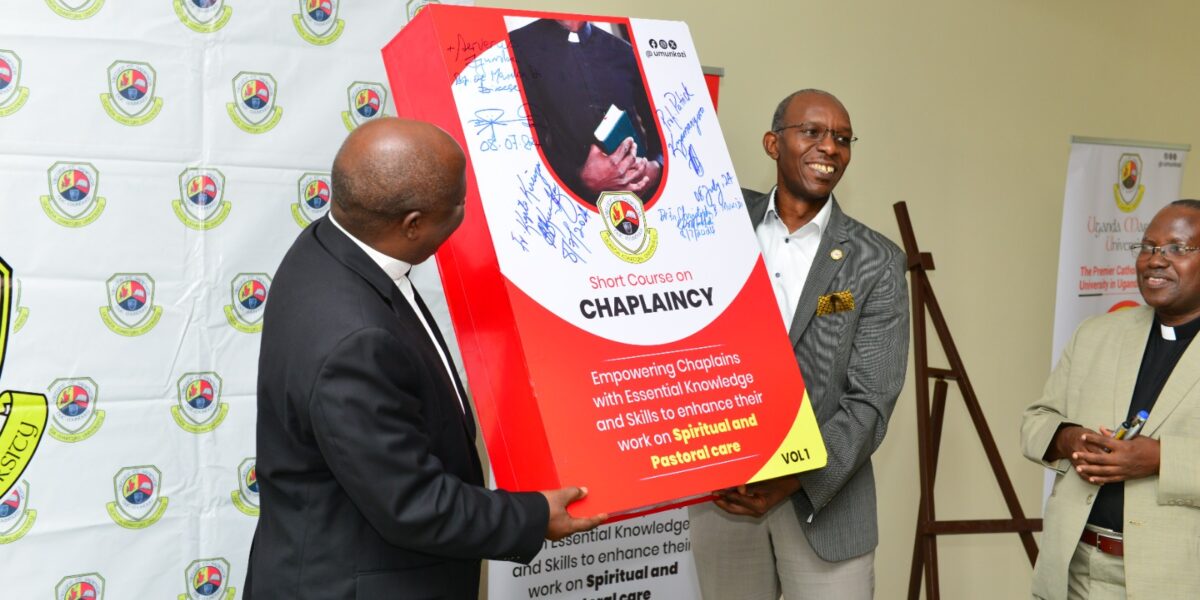
Celebrating World Wildlife Day 2024
In a vibrant celebration of World Wildlife Day 2024, a collaborative team from the National Environment Management Authority (NEMA) and the Uganda Martyrs University (UMU) community in Nkozi gathered to explore the powerful intersection of technology and conservation under the theme, “Connecting People and Planet: Exploring Digital Innovation in Wildlife Conservation.”
The event, held at UMU, highlighted the crucial role digital innovations play in the protection of Uganda’s rich biodiversity, while also emphasizing the importance of community engagement in conservation efforts.
A Day of Inspiration and Action
The celebration brought together UMU students, NEMA representatives, and local community members to share knowledge, engage in discussions, and participate in interactive activities focused on the theme. The day’s events provided a platform to explore how digital technologies—such as geographic information systems (GIS), drones, artificial intelligence (AI), and mobile apps—are revolutionizing wildlife conservation, making it more efficient and accessible.
The keynote address underscored the role of digital tools in enhancing conservation efforts across Uganda, particularly in the country’s national parks and protected areas. With Uganda being home to iconic species like the mountain gorilla, elephants, and lions, the role of technology in wildlife protection has never been more urgent.

Connecting People and Planet through Technology
Throughout the day, various presentations and demonstrations showcased cutting-edge digital tools that are currently being used in Uganda to combat wildlife poaching and protect endangered species. One of the most engaging aspects of the celebration was the live demonstration of mobile applications designed to involve local communities in wildlife conservation. In addition, NEMA representatives discussed the impact of AI-driven technologies, which are being used to predict poaching activity by analyzing patterns in historical data, satellite images, and camera trap photos. This kind of early-warning system, they noted, has been instrumental in curbing illegal wildlife trade.
Inspiring the Next Generation of Conservationists
The celebration also focused on inspiring the next generation of environmental leaders. Students from UMU participated in discussions about how they can integrate digital tools into their own studies and future careers in conservation. The event served as an eye-opener for many students, showing them how their education can be enhanced by leveraging technology for environmental sustainability.
Community Engagement: A Vital Aspect of Conservation
One of the core messages of World Wildlife Day was the importance of connecting people to the planet. The UMU community and NEMA emphasized that conservation efforts are only successful when local communities are involved. The integration of digital tools allows for greater community participation, making it easier for people to contribute to conservation efforts, even from their own homes or local areas.
Throughout the event, community members were encouraged to share their experiences with wildlife conservation, highlighting how they’ve used technology in their own lives to make a difference. Local farmers, for instance, spoke about how digital platforms have helped them access training on sustainable farming practices that reduce human-wildlife conflict and improve the overall health of the environment.
Looking Ahead: A Digital Future for Conservation
As the event came to a close, attendees were reminded of the significant role that digital innovation will continue to play in wildlife conservation efforts. NEMA and UMU both reaffirmed their commitment to supporting the use of technology in conservation, through both education and community engagement.
The event demonstrated that connecting people and planet through digital innovation is not only a goal but an achievable reality. By embracing these tools, Uganda is positioning itself as a leader in the use of technology for wildlife conservation. As a university, UMU will continue to educate and empower students to be at the forefront of this movement, equipped with the knowledge and skills to protect Uganda’s incredible biodiversity for generations to come.
Conclusion: A Unified Commitment to Conservation
World Wildlife Day 2024 was a reminder that the future of Uganda’s wildlife depends on collective action, innovation, and collaboration. The celebration in Nkozi brought together students, faculty, conservation experts, and the local community to reflect on how technology can be used to bridge the gap between people and the planet. The message was clear: to protect our wildlife and ecosystems, we must harness the power of digital innovation, foster community involvement, and inspire future leaders in conservation.
As we move forward, let us continue to explore new ways to connect people and planet through technology, and work together to ensure that Uganda’s wildlife thrives for generations to come.
Happy World Wildlife Day 2024!






